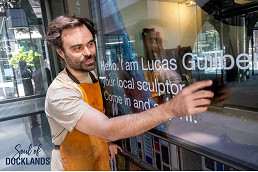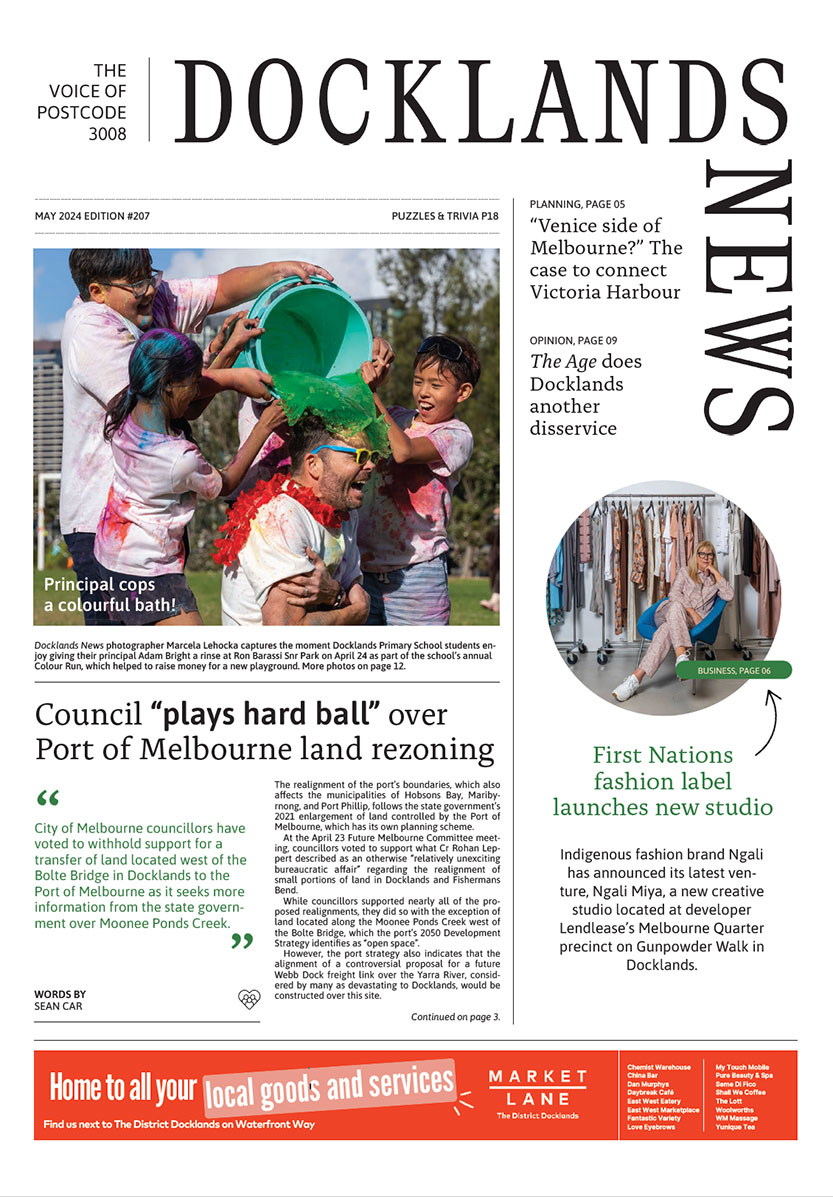Council endorses retrofit plan to tackle city’s emissions
Older commercial buildings are the focus of a new City of Melbourne plan to reduce the city’s carbon emissions by more than 60 per cent.
At the September 19 Future Melbourne Committee meeting, councillors voted eight to one in favour of the “Retrofit Melbourne” plan, which will see the council roll out a range of measures aimed at decarbonising more than 80 commercial buildings each year by 2040.
The plan will largely focus on more than 1500 “mid-tier” commercial buildings, those defined as being generally built pre-2000 with lower levels of energy efficiency than premium or A-grade buildings, and are the biggest contributors to the city’s emissions. The City of Melbourne has a greater share of mid-tier buildings than any other capital city.
The plan recognises the “significant barriers” of retrofitting mid-tier buildings, such as difficulty in accessing capital and information, limited networking among mid-tier owners and tenants, and a limited capacity of industry professionals.
Commercial buildings are responsible for 60 per cent of the city’s greenhouse gas emissions, while residential towers account for six per cent of emissions. The plan includes a range of initiatives aimed at transitioning more commercial towers to electrification powered by 100 per cent renewable energy in order for Melbourne to become a zero-carbon city by 2040.
The council will now work with a range of stakeholders including industry and other levels of government to implement 11 key initiatives under four work streams: “advocacy”, “information and support”, “enabling mechanisms” and “investigating options for regulation”. Among these initiatives are:
- Incentivising periodic reporting of a building’s NABERS rating.
- Establishing a better buildings fund.
- Creating a zero carbon buildings portal.
- Facilitating a zero carbon buildings advisory group.
- Convening zero carbon building retrofit teams.
- Hosting thought leadership events.
- Delivering zero carbon precincts.
- Developing zero carbon building leases – agreement between landlords and tenants to jointly commit to ensuring their building is zero carbon ready .
- Establishing a carbon risk tool.
- Incentivising building performance through rates.
- Introducing an emissions cap through local law.
Lord Mayor Sally Capp said Retrofit Melbourne was “a necessary plan to lower emissions, drive down energy bills and make our buildings more sustainable.”
“Existing buildings contribute 66 per cent of our current carbon emissions. To become a zero-carbon city by 2040, more than 80 commercial buildings need to be decarbonised each year,” Cr Capp said.
It’s crucial we act now – working alongside industry, government and academic partners to future-proof our city for generations to come.
“We need to get the balance right – protecting our older buildings which give Melbourne its character, while accelerating our collective journey towards zero net emissions.”
“Buildings that are decarbonized are more attractive to tenants and also increase capital value over time - unlocking enormous potential to revitalise underutilised commercial buildings in the city, supporting a thriving city experience and economy.”
The council’s sustainable building portfolio lead Cr Elizabeth Doidge said the plan was a “radical” one needed to “tackle our emissions and transform our city.
“The City of Melbourne is the first city in Australia tackling this issue with real action,” Cr Doidge said.
“Retrofit Melbourne will deliver an innovative framework – driving collaboration between industry and government partners to fast-track the city’s zero carbon transition.”
While the plan was overwhelmingly endorsed by councillors on September 19, the one councillor to vote against it – Roshena Campbell – argued that the introduction of an emissions cap would create “an uneven playing field” for smaller property owners.
“There’s no doubt that we do need to do work to support the retrofitting of these buildings, but I can’t support one of the regulatory measures,” Cr Campbell said.
“One of the advantages the report identifies is the fact that this measure [emissions cap] will raise revenue and I think we should be very, very cautious about imposing that financial burden on our building owners right now.”
“Although the big players might welcome it as they’re looking to retrofit anyway, the reality is there are property owners who will not be able to afford this. They will either be forced to sell or be forced to bear a burden that, particularly now in these economic conditions, will be a very heavy one indeed.”
But Cr Doidge responded to Cr Campbell’s concerns by saying the council hadn’t yet determined what an emissions cap would look like.
“We’re not actually voting to implement an emissions cap tonight. We’re basically voting to investigate what an emissions cap would look like if it would work, and how it would work. “The result of that might be that an emissions cap doesn’t necessarily have a financial penalty, it may actually mean that those buildings producing over a certain cap, receive financial incentives and supports to retrofit.”
Cr Dr Olivia Ball said the council had an obligation to move swiftly in decarbonising the city amid a rapidly changing climate.
“My fellow Cr Campbell spoke of the disadvantage to Melbourne property owners and imposing financial burdens on them and her hesitations in doing so. But how would these financial burdens compare, or disadvantages compare with extreme weather events that are definitely going to occur and are occurring already?” Cr Dr Ball said.
“Today is a total fire ban in NSW and we have high bushfire risk in September. It is extremely alarming.”
“We have to consider investments in retrofitting as investments in our future investments in a safe climate, in attempting to reclaim a liveable climate for us and our children and their children. This is happening now. We must move as swiftly as possible.” •

Meet Lucas Guilbert







 Download the Latest Edition
Download the Latest Edition
